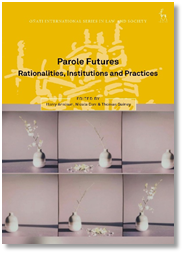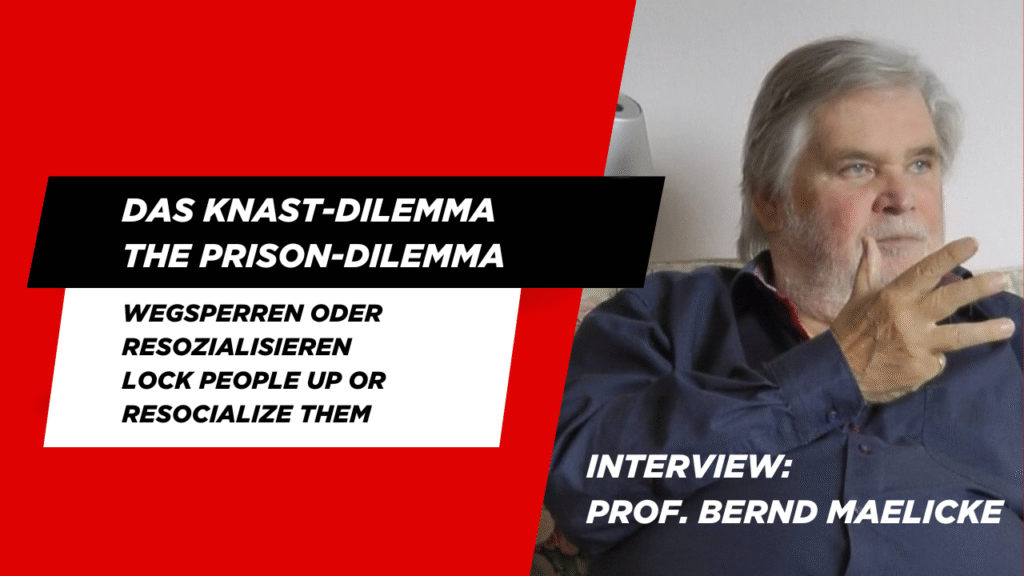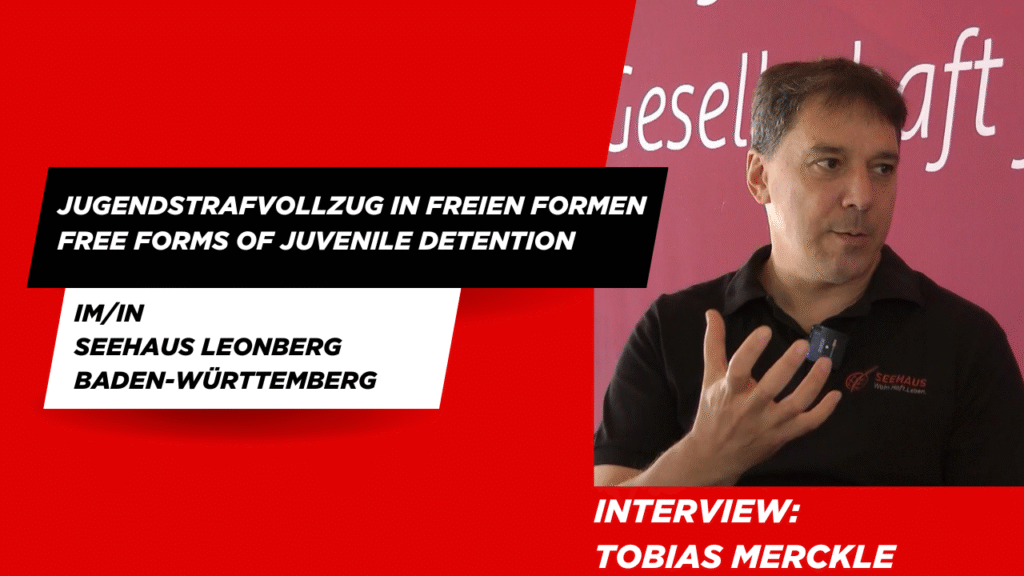Previous Article
News
Interview with new CEP board member Daniel Danglades
During the General Assembly in Croatia a new CEP Board got elected for the upcoming three years. In the coming weeks we will publish interviews with all newly-elected board members where they will share information on their professional background, how they would like to contribute, what challenges lie ahead and many more.
Enjoy reading!

Can you shortly introduce yourself?
I am currently working as a policy officer at the headquarters of probation services in Paris. Right now, I am acting as an international liaison officer.
Through my versatile professional path, I have developed skills on the methodological level (offender supervision in prison and in the community), on the policy level (consultation with judicial, NGO, stakeholders, and involvement in drafting law). I am a practitioner that is my background. I joined the French penitentiary administration directorate (prisons and probation services under the same management in France) first as a correctional officer before undertaking various positions as a probation officer in several services.
I have been directly involved in many progressive reforms France has embarked on during these last years regarding alternatives to imprisonment and probation services role, reforms which have changed not only the way probation services operate and perform but also how they can be more efficient.
As part of my commitment to probation at the European level and beyond (Bahrain in the Middle East and the 5th World Congress of Probation and Parole in Ottawa), I take part in several conference programs, expert group meetings, international workshops and other events.
When I am not involved in probation matters, I am a single dad taking care of my dear two boys. I love cooking; I guess it is part of my Caribbean heritage. And I am also no stranger to adventure, I had the opportunity to live and work in Lebanon (Middle East), Brighton (UK) and New Orleans (USA).
Why did you decide to run for the CEP Board?
This question takes me back to a few years ago when I had to reflect on my motivations to join probation services when I left prison services. At that time, it was clear to me, imprisonment had become not only the default measure used to address crime in the criminal justice system but also the default system to manage complex disadvantages. Very disadvantaged individuals often end up being managed in justice system settings rather than receiving the support, care, and connection that people require in the community.
When I noticed offenders getting long sentences with no hope whatsoever or offenders going back and forth between the prison and the community, I was flabbergasted. Do not get me wrong we need prisons as much as we need schools, hospitals and universities.
Anyway, I reckon that becoming a CEP board member is not about my own path, it is about sharing my passion and knowledge to provide as much value as possible to probation services or probation and parole services to be inclusive.
CEP’s purpose and probation vision correspond with my own beliefs and outlook on probation. Besides, as a current member of several CEP expert groups, I had the honour to be involved in CEP works and to have made substantive contributions such as the organisation of electronic monitoring in Helsinki, Finland. I also realised that interconnectivity is the key: EuroPris, Council of Europe with the penological working group, European forum for Restorative Justice, UNODC with the Kyoto Congress, and World congress of probation, all of these organisations constitute a strong network that surely has to be valued.
Serving CEP as a board member is the opportunity to take my commitment to another level, add my voice to promote probation, to bring my passion, and my ability to think out of the box and connect the dots and people. I have no doubt I will deepen my knowledge, experience and perspective. There is a lot going out there: research, different practices and methods…
Last but not the least, over the last few years either on a European level or international level, I could not stop noticing that France is relatively absent in debates, webinars and conferences. Somehow, I hope my election as a CEP board member will allow me not just to promote French good practices but also increase French probation services’ involvement on the European and the international scene.
How would you like to contribute to the development of CEP in the upcoming three years and what impact you hope to have on CEP?
First, I want to thank all CEP members for honouring me with their votes. I am immensely grateful. I am excited about the next three years. CEP is a gem with amazing staff doing a great job and I am honoured to be a member of this team. We have many topics to address. Just to name a few: technologies use in probation, electronic monitoring and artificial intelligence, gender-based violence, the alternatives to detention, probation officers’ workload, human rights, and staff training….
I recall Brian Heath’s speech at the 9th CEP Conference for Directors General of Probation in November 2021 where we celebrated the 40th anniversary of the first CEP meeting at Royaumont, Paris. Indeed, I will do my best and carry on the good work of previous board members who have done a lot for CEP over the years. Today, CEP is recognised as the voice of probation in Europe. I would also like to cherish and nurture the shared commitment of probation and parole authorities and professionals to reach out to and include the marginalised and excluded individuals, who remain at the heart of our work.
As for the impact, I hope to have on CEP, having more probation staff involved in CEP activities and even more importantly increasing staff awareness of policy work would be great. When working with probationers in the community, the advocacy work or the reform work is at best something we do almost off to the side of our desks. It is not something that is front and centre because probation officers are very focused on working with offenders.
It would be also great to figure out how CEP learning and capacity building can be disseminated at the national level to frontline staff across member states.
What are your main priorities/topics you would like to open while serving as the CEP Board member and how would you like to make use of your knowledge to the development of CEP?
The main priorities I have are each related to the challenges exposed in the next question (in the same rank)
- How do we improve the credibility of the probation service in order to enhance the public’s and relevant stakeholders’ confidence?
Like imprisonment, probation does both hurt and constrain offenders. Probation services will have to work on how they are being perceived both by the community and by the offenders themselves. Probation services aim to generate and sustain rehabilitation momentum.
- How do we implement interdisciplinary collaboration among various agencies and authorities?
Rehabilitation is not the sole responsibility of probation services. Reintegration can only be ensured through a global approach via probation services, the community, collective and individual involvement and support by public policies (educational, housing domestic violence, minority groups, mental and physical health issues…..).
For example, we are all aware of the importance of interagency cooperation when it comes to rehabilitation, but how do we systematically work together?
- Data collection
It would be helpful to the overall goals of the probation service to engage in a more systematic and widespread process of probation-related data collection across jurisdictions and to ensure the effective distribution of those data to relevant stakeholders, as well as the public.
Probation services would also greatly benefit from the centralization and consolidation of research, academic studies, and other investigations of probation-related practices across Europe, so that different probation services may learn from the work and innovations of one another.
I am ready and willing to commit myself to CEP. I am fortunate to have the full support of my organisation, including my director general and deputy director general. Furthermore, I am a team spirit builder and I am passionate about probation. I thrive on finding resolutions to problems. I am confident that these qualities together with my enthusiasm and determination will be an asset to CEP development.
What are the challenges that lie ahead CEP in the future?
With inflation squeezing budgets for food and household goods, with a war within our borders, with public service under the grip of cutbacks and in times like these you are more likely to show little compassion for the less fortunate others, and even blame the marginalized and the disadvantaged for their own problems, it is pretty fair to say that a number of challenges lie ahead CEP.
How do we sustain probation during those challenging times?
- Challenge 1: Staff training/Workload
European probation model, based on collecting a knowledge base of measures, methods interventions and criteria to measure probation work.
- Challenge 2: Cooperation
Better interagency collaboration will also help with access to support and tailored services for varied groups and reduce vulnerabilities while serving sentences.
- Challenge 3: Assessment based on data collection
How do probation services organise the assessment of their activities to guarantee the efficiency of probation supervision?

Related News
Keep up to date with the latest developments, stories, and updates on probation from across Europe and beyond. Find relevant news and insights shaping the field today.

Probation in Europe, Technology
Have Your Say: EU Call for Evidence on the Digitalisation of Justice (2025–2030)
18/08/2025
The European Commission has opened a Call for Evidence on the Digitalisation of Justice: 2025–2030 European Judicial Training Strategy.
Reading corner

Criminal Justice
Parole Futures
18/08/2025
At a time when many parole systems are experiencing considerable strain, the aims of this collection are twofold: first, to encourage systematic and critical reflection on the rationalities, institutions and practices of parole. Second, to think big, and pose ambitious ‘what if’ questions about the possible futures of parole and prison release. Offering novel insights from Asia, Australia, Europe, North America and South America, this collection builds the case for, and then showcases, a ‘way of doing’ parole research that is global in outlook, interdisciplinary in approach and unapologetically normative in character.
New

Probation in Europe
New Vodcast Episode: Prof. Bernd Maelicke on The Prison-Dilemma
12/08/2025
The 13th episode of Division_Y features an in-depth conversation with Prof. Bernd Maelicke, one of Germany’s most respected voices in prison and probation reform.
New

Probation outside Europe
CEP Ambassador Steve Pitts Receives Prestigious Japanese Honour
05/08/2025
We are pleased to share that CEP Ambassador Steve Pitts has been awarded the prestigious Order of the Rising Sun, Gold Rays with Rosette by the Government of Japan. The honour was officially presented on 25th July 2025 at a formal ceremony held at the Japanese Ambassador‘s residence in London, hosted by the Japanese Ambassador.
New

CEP Events
Mark Your Calendars: Exciting Probation Events Ahead
30/07/2025
As the season continues, we’re looking ahead to a dynamic line-up of events across Europe. From specialised workshops to international training and conferences, there’s something valuable for everyone working in probation and beyond.
New

Probation in Europe
New Vodcast Episode: Tobias Merckle on Free Forms of Juvenile Detention
12/07/2025
The 12th episode of Division_Y features an engaging discussion with Tobias Merckle, a social worker and social entrepreneur from Baden-Württemberg, Germany.
Subscribe to our bi-monthly email newsletter!
"*" indicates required fields
- Keep up to date with important probation developments and insights.

